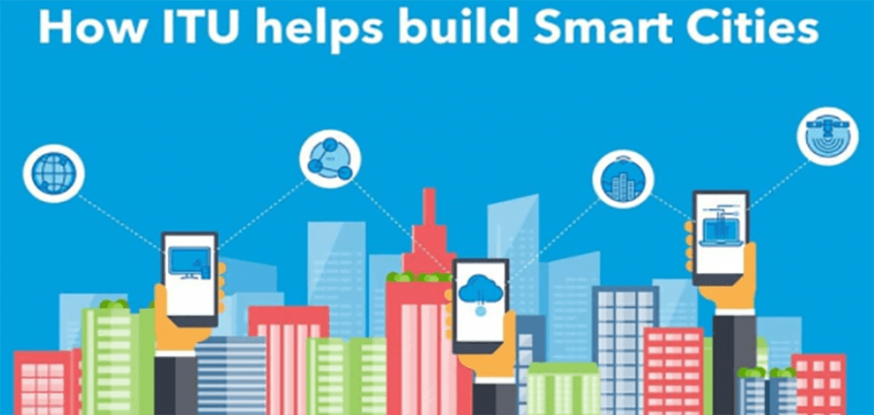The International Energy Agency (IEA) has released a report on cities and the importance of achieving a net-zero world.
The report titled ‘Empowering Cities for a Net Zero Future’ tackles the issues and challenges that cities are facing on climate action. In the report, the IEA states that “cities are key to a net-zero emissions future where affordable and sustainable energy is accessible to all. The global population living in cities is expected to surge from 50% in 2021 to 70% in 2050. Cities today account for 70% of global CO2 emissions and 75% of global energy use. But with size comes opportunity.”
The report takes a look at the opportunities, challenges, and policy solutions that can help city governments leverage the benefits of efficient and smart digital energy systems through illustrations and over 100 examples and case studies. It also provides actionable guidance on ways national governments can help cities overcome barriers to progress and accelerate clean energy transitions using digitalisation.
In the section ‘cross-sector opportunities for smarter sustainable cities,’ the report reviews the opportunities that digital tools open up to help accelerate clean energy transitions, with a focus on urban planning and integrated approaches.
Furthermore, the report states that “digitalisation can be deployed across a range of systems to improve efficiency and reduce the costs of urban services, while also accelerating clean energy transitions – increasing the deployment of renewables, improving energy efficiency, and reducing fuel consumption and emissions. Connected assets and infrastructure can support more integrated urban planning practices and transform urban energy sectors, such as buildings, transport, and lighting, making the value of smart, sustainable urban energy systems more than the sum of their parts.”
The report acknowledges the International Telecommunication Union’s (ITU) role in the development of capacity-building programs for integrated city planning.
Below are some of ITU’s initiatives that are aimed at supporting the zero-net target set by the United Nations.
Digital skills capacity building training
Launched in September 2019, ITU's Digital Transformation Centres (DTC) Initiative saw the ITU partner with technology conglomerate Cisco in nine countries help strengthen the digital capacities of their citizens, particularly in underserved communities.
The training aims to expand skills policy and training and defining transferrable skills for a digital future to overcome the human and technical capacity challenges involved in bridging the digital divide through enhances digital skills.This training fosters partnerships with academia and ICTs, government agencies, which eventually stimulated social innovation activities that empower communities to benefit from the digital revolution. ITU has opened applications for the second phase of its DTC Initiative, aiming to close the persistent gap in digital skills worldwide. Interested eligible institutions can submit their applications by 31 August 2021.

Key performance indicators for smart sustainable cities
The ITU has developed key performance indicators (KPIs) for smart sustainable cities to allow city administrations to evaluate their achievement of sustainable development goals. They can help cities, as well as their stakeholders, understand to what extent they may be perceived as smart and sustainable, helping to create common understanding and transparency in urban governance.
ITU along with several UN bodies coordinates the UN’s United for Smart Sustainable Cities (U4SSC) initiative that provides the guidance necessary to help cities along their smartness and sustainability pathways.
The KPIs indicators have been developed to provide cities with a standardized method to collect the necessary data to measure performance and progress regarding:
· Achieving the Sustainable Development Goals (SDGs);
· Becoming a smarter city; and
· Becoming a more sustainable city.

Standardisation programmes
Standards are needed to ensure interoperability, data privacy, grid stability and cybersecurity in smart cities.
ITU works alongside key international standards-developing organisations such as the International Organization for Standardization (ISO) and the International Electrotechnical Commission (IEC) within the realm of smart and sustainable cities. Jointly, the ITU, IEC and ISO also co-ordinate smart city-related activities under the umbrella of the Joint IEC-ITU-ISO Smart City Taskforce (J-SCTF) to facilitate interoperability and the duplication of work within this field.

Global observatory for urban intelligence (GOUI)
The Institute of Electrical and Electronics Engineers (IEEE) and ITU will collaborate to develop a “Global Observatory for Urban Intelligence” (GOUI, an open-source cloud platform using crowd-sourcing collaborative tools. Its components will be developed in multiple phases, from its Smart City Ontology, to Correlation, then Data gathering, Modelling and AI/ML. For each phase, open-source tools will be used where possible to automate processes, and step-by-step results will be tried and tested across global focus groups. This initiative aims to bring together private sector experts, representatives from leading research institutes, the academia, smart city networks, civil society, NGOs, UN agencies and other relevant stakeholders.

ITU-T Study Group 20 - Internet of things (IoT) and smart cities and communities (SC&C)
In line with IEA’s recognition of the evolving technology landscape creating new sources of rich data on air quality, energy consumption, geospatial information and traffic patterns, and new tools to manage that data, the new ITU-T Study Group 20 on “Internet of things (IoT) and smart cities and communities (SC&C)”, provides a unique platform to influence the development of international IoT standards and their application as part of urban-development master plans.

